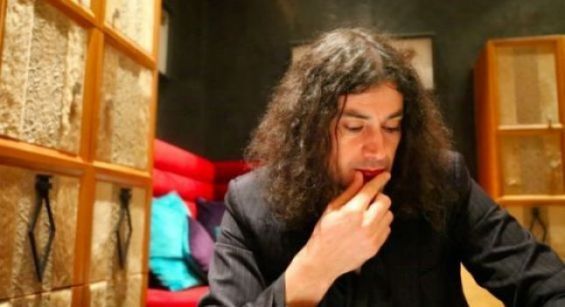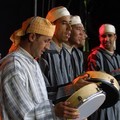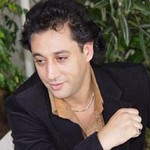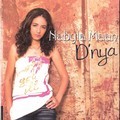Moroccan screenwriter and movie director Mohamed El Badaoui has been an absolute sea lover since his childhood, most of which he spent in the city of Al Hoceima. Every day, he used to sit next to the sea and wonder how fresh water meets seawater.
«I used to feel that I was different from my peers, I loved to be by myself, thinking about nature and its creatures, I was a sort of a little philosopher!» El Badaoui told Yabiladi.
The Al Hoceima-native was born in 1979 to a lower-income family. His father died when he turned six years old at a time when he had to go to school for the first time. His family’s situation forced him to work to carry on studying.
«When I turned fourteen, my brothers, who were living in the Netherlands, wanted me to join them and I stayed there for about ten years. After that, I decided to go to Spain, where my cousins were staying, and decided to settle down there, and now I have a family and a young daughter», he recalled.
Once in Spain, he started to go his own path. He worked in a restaurant in Madrid at night and studied «graphic design» during the day. He was hired by a company specialized in designing websites of all kinds, and he soon returned to work in said restaurant during the night, so that he could keep studying editing and special effects.
The movie industry
After graduating, he worked for Spanish airline Iberia, making three videos a month and, after five years, he was able to make a decent living.
«After that I started studying cinema, script-writing, directing and producing, I started doing trainings in filming movies, and I wrote the first scenario but I failed to deliver it to the screen, because I did not find a producer, no one can trust a person who barely started. I did not give up, wrote the second scenario, and decided to fund my first film with the money I made during my work for the Spanish airline. I went back to Morocco in order to shoot my first movie, called «Suleiman», which came out in 2012».
El Badaoui chose Al Hoceima to shoot his first movie, which sheds light on the suffering of a child with cancer. His choice was based on his own experience: «I am a native of Al Hoceima, which is a cinematic region, and in need of cultural development».
«Critics and cinema professionals praised the film, which made it to international festivals in Cairo, Argentina, the Dominican Republic and the Netherlands; I met a Spanish producer at the Cannes festival who asked me to direct a new movie. He agreed after reading the script, and this movie is now "Palestine" that we started filming in 2016», he recalled.

The movie was scheduled to be filmed in Hebron, Palestine, but El Badaoui was able to convince the producer to film it in Morocco. In order to stay true to the film, he filmed a few scenes in Hebron after taking a small team with him.
«The film discusses the Palestinian issue with a neutral and tolerant viewpoint, it talks about relations between people outside the political, ideological or religious borders, it talks about man to man relationships», he explained.
Like his film Suleiman, «Palestine» was praised and invited to major festivals, but El Badaoui was afraid of bringing it to Morocco, and he was afraid of it being rejected due to the way it deals with the Palestinian issue. «I was afraid that Moroccans would not accept it, given their view of the Palestinian-Israeli conflict while the film talks about coexistence, but it turned out that people loved it when it was aired in a Rabat festival».
Staying true to his roots
While filming Palestine, El Badaoui was writing a script for «Lalla Aisha». The movie deals with most of the issues that people from the countryside in Morocco suffer from, such as unemployment and migration. The movie premiered at the 2019 edition of the International Film Festival in Marrakech.
«I went to castings in the streets, markets and countryside schools, to choose the actors who would participate to the film, given that in the region there is no cinematic culture. But I found talents that only needed help».
He explained that his movie «has a social role, as it tried to develop the rural culture». «I focus on women in general and rural women in particular: if we don't talk about women through cinema, who will talk about them? This is the role of cinema».
Short dialogues, as well as sea scenes characterize his work. «I try to be more open, despite the existence of a few dialogues, but several languages are present: Arabic, French, Amazigh ... I try to bring diversity to my movies and I focus on feelings, not dialogues», he added.
The Moroccan director and scriptwriter stresses that he will remain true to his approach, and the most important thing for him is «creativity».
«I produced my first film and if a profit is made then it is a good thing and if not, the important thing is that I did what I love. I think that there is an audience for everything, there are people who love films like mine and I respect all tastes, of course».
El Badaoui said he is proud of the people of the countryside and their appreciation for his work and he said that he wishes «their problems to end and that they will live in happiness and prosperity».





 chargement...
chargement...













